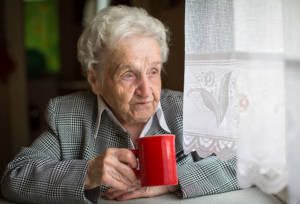Could Your Aging Adult Be Depressed?

Home Care Fresno CA – Could Your Aging Adult Be Depressed?
Depression can be a very real and very dangerous condition for your aging adult. Older adults can experience depression in a variety of ways that change how they interact with the world around them. If you’re not sure your senior is depressed, looking for some of these signs can help you to start the conversation.
She’s Experienced a Loss Recently
Depression after a loss is a very common aspect of grieving, but it’s not the only reason for depression. If your senior has experienced the loss of someone close to her, then depression can definitely become an issue. Keep in mind that other forms of loss can also contribute, such as losing her independence or losing the ability to do specific things. Having help from you and from home care providers can definitely help, but she’s still grieving a loss.
She’s More Irritable than Usual
Irritability is often a close symptom to depression. Your senior may show irritability more when you’re trying to coax her to do something that she doesn’t want to do or that would force her to be more involved in life in general. Often irritability is more obvious in someone who is normally in a generally content mood most of the time.
She’s Withdrawn from Normal Activities
If your elderly family member isn’t doing the same things that she’s always done and loved, this can be a big sign. Talk to your elderly family member about what she’s doing and who she’s interacting with during the day. She might not want you to realize that she’s staying at home more often than she was, so it could take some detective work on your part to determine what’s going on.
She’s Ignoring Her Own Well-being
Often a big part of depression involves your senior no longer paying attention to herself. Depression robs your senior of any sense of maintaining her own well-being and that can express itself in a variety of ways. She might stop bathing regularly or she might start wearing the same clothes over and over again. It’s easier to hide this sort of behavior if you don’t get to see your senior as often as you’d like to see her.
It’s important that even if you only suspect your elderly family member might be depressed you speak with her doctor about what’s going on. The sooner you get help for her, the better it will be for her in the long run.
Related Articles:
https://valleyhca.com/are-there-multiple-forms-of-spinal-muscular-atrophy/
https://valleyhca.com/does-traumatic-brain-injury-increase-your-parents-risk-of-alzheimers-disease/
https://valleyhca.com/5-myths-and-truths-about-parkinsons/
https://valleyhca.com/prostate-cancer-five-things-you-should-know/
https://valleyhca.com/home-health-care-fresno-ca-what-are-the-possible-symptoms-of-crohns-disease/
https://valleyhca.com/elderly-care-modesto-ca-pneumonia-can-hospitalize-elderly-adults/
https://valleyhca.com/elderly-care-fresno-ca-is-your-senior-at-risk-for-ibs/
